America, during the 90s, was heading for a new revolution in technology. With the rise of software companies, a huge amount of Americans were taking up the positions to earn big bucks. However, this led to a mundane and extremely dull life among American citizens. Filmmaker Mike Judge explored this mundane life to create a satire, called ‘Office Space’ (1999). It follows three software company workers who hate their jobs and decide to rebel against their greedy boss. The film satirizes the typical mid-to-late 1990s software company with brilliance. While the film builds upon the premise with rib-tickling comedy, it also depicts the problems and challenges faced by white-collar employees with deep empathy.
The films on this article belong to the genre of satire. While some deal with comparatively smaller issues relating to daily life, other flicks explore more prominent issues of society and several controversial topics. So with all that said now, here’s the list of best movies similar to ‘Office Space’ that are our recommendations. You can watch several of these movies like ‘Office Space’ on Netflix, Hulu or Amazon Prime.
10. Investigation of a Citizen Above Suspicion (1970)
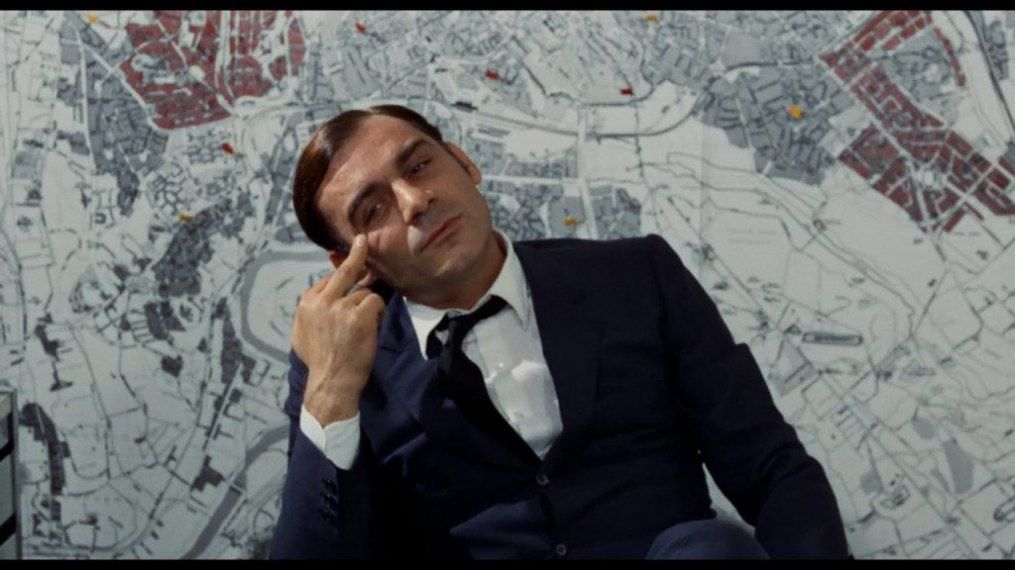
A recipient of the Academy Award for Best Foreign Language Film, ‘Investigation of a Citizen Above Suspicion’ (1970) is a crime drama about a chief of detectives of the homicide section, essayed by Gian Maria Volonté, who kills his mistress, played by Florinda Bolkan, and deliberately leaves clues to prove his own responsibility for the crime. Directed by Italian political filmmaker Elio Petri, the bizarre plot stems from Petri’s satirical commentary on the corruption in the high office. Co-written by Elio Petri and Ugo Pirro, the narrative explores the themes of authority and the justice system, which has been tainted by fraudulent officers. The film also depicts the twisted functioning of the human psyche. It went on to receive immense critical appreciation, with many crediting it to be one of the best films of the year. Further, the critical applause and the commercial success earned the film the aforementioned Academy Award for Best Foreign Language Film.
9. Brazil (1985)
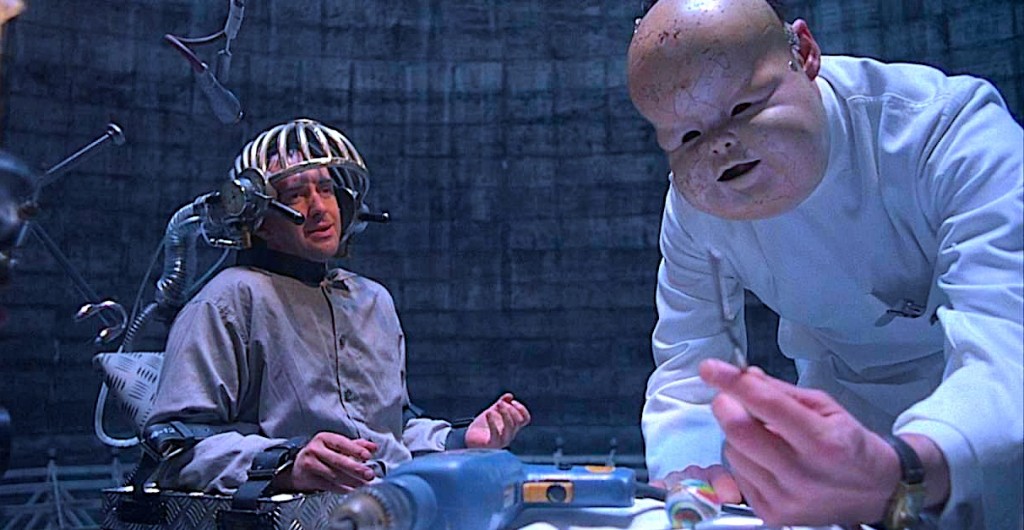
A dystopian science fiction film, ‘Brazil’ follows Sam Lowry, a man who is on the endeavour to find a woman who appears in his dreams while he is working a tedious job and is living in a small apartment. Adding to his misery is the consumerist dystopian world and the over-reliance and embarrassing maintenance machines. Co-written by Terry Gilliam, Tom Stoppard and Charles McKeown, the narrative of the film stems from the iconic dystopian fiction ‘Nineteen Eighty-Four’, written by English novelist George Orwell. The film also borrows much of the narrative structure and the political commentary from Stanley Kubrick’s ‘Dr Strangelove’, satirizing the bureaucratic and totalitarian governance which would take over much of the future. Though the film wasn’t well received by the audience, ‘Brazil’ has, over the years, earned a cult status and is now widely regarded as one of the greatest sci-fi films of all time.
8. Being There (1979)
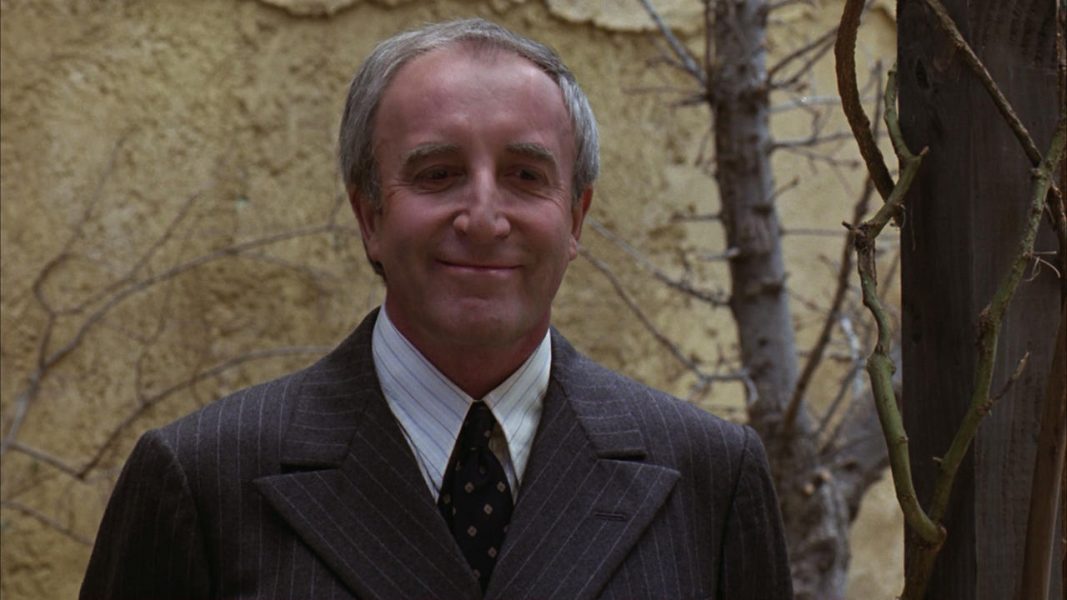
Adapted from Polish writer Jerzy Kosinski’s satirical novel ‘Being There’, published in 1970, the story centres around Chauncey Gardiner, essayed by the multi-faceted Peter Sellers, a simple and mild-mannered sheltered gardener who becomes an unlikely trusted advisor to a powerful businessman and an insider in the world of Washington politics. Directed by American filmmaker Hal Ashby, ‘Being There’ is filled with social commentary infused with social satire critiquing the autonomy of the economy of the modern world. The film’s hilarity is the cumulative efforts of the intrinsic directorial skills of Ashby and Sellers’ brilliant performance as Chauncey Gardiner.
The critical reception was very positive, with film critic Roger Ebert naming it as one of his favourite films, writing in his review, “the movie presents us with an image, and while you may discuss the meaning of the image, it is not permitted to devise explanations for it. Since Ashby does not show a pier, there is no pier—a movie is exactly what it shows us, and nothing more.” The film went on to win a couple of awards such as a Golden Globe Best Actor in a Motion Picture – Comedy or Musical and an Academy Award and a Golden Globe for Best Actor in a Supporting Role, to name a few.
7. Happiness (1998)

‘Happiness’ follows different individuals whose lives intertwine as they engage in several disturbing activities while desperately and frantically searching for a human connection. Premiering at the Cannes Film Festival, ‘Happiness’ won the FIPRESCI Prize. Directed by American independent filmmaker Todd Solondz, the black comedy satirizes the dark psychology of people leading seemingly mundane lives. ‘Happiness’ is replete with controversial themes of sexuality such as paedophilia, a factor which led to much controversy in many film festivals. However, the controversial and taboo topics addressed by the narrative do not feel heavy handed as they maintain a clear vision. The absurd nature of the film was received very well by critics and many placed it at the top of their year’s list.
6. The Discreet Charm of the Bourgeoisie (1972)
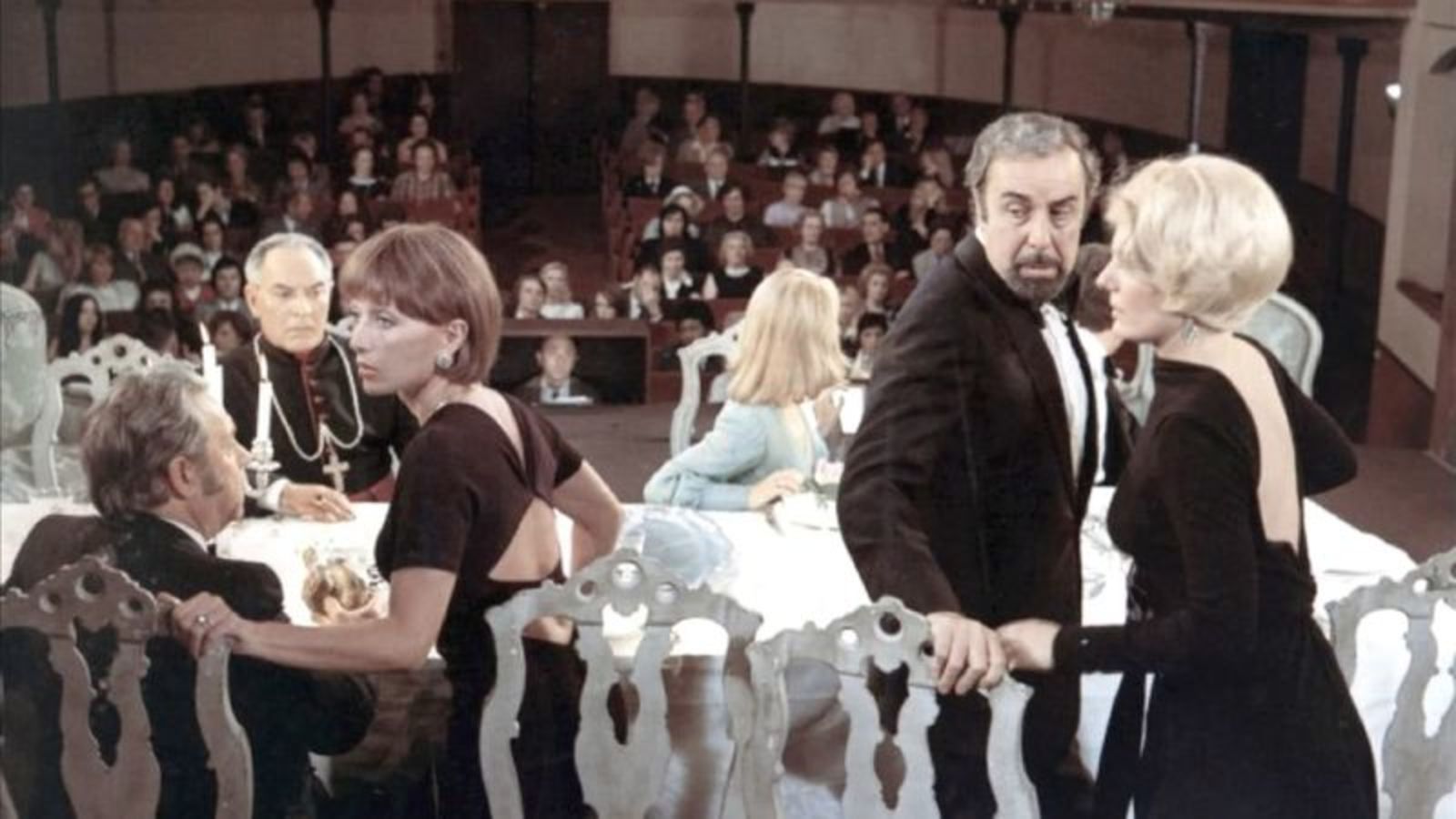
Directed by the legendary Spanish filmmaker Luis Buñuel, ‘The Discreet Charm of the Bourgeoisie’ (1972) is a surrealist film following a “plot-less” series of dreams which center around six middle-class people and their consistently interrupted attempts to have a meal together. The film received the Academy Award for Best Foreign Language Film. The script, co-written by Luis Buñuel and Jean-Claude Carrière, critiques and satirizes the sensibilities of the bourgeois class. It is a quintessential Buñuel piece that utilizes surrealism to indulge in other genres and narrative, in this case, satire being the one. The film received high praise for Buñuel’s conception and further execution of the bizarre plot combined with the witty and humorous writing.
5. The Witness (1969)
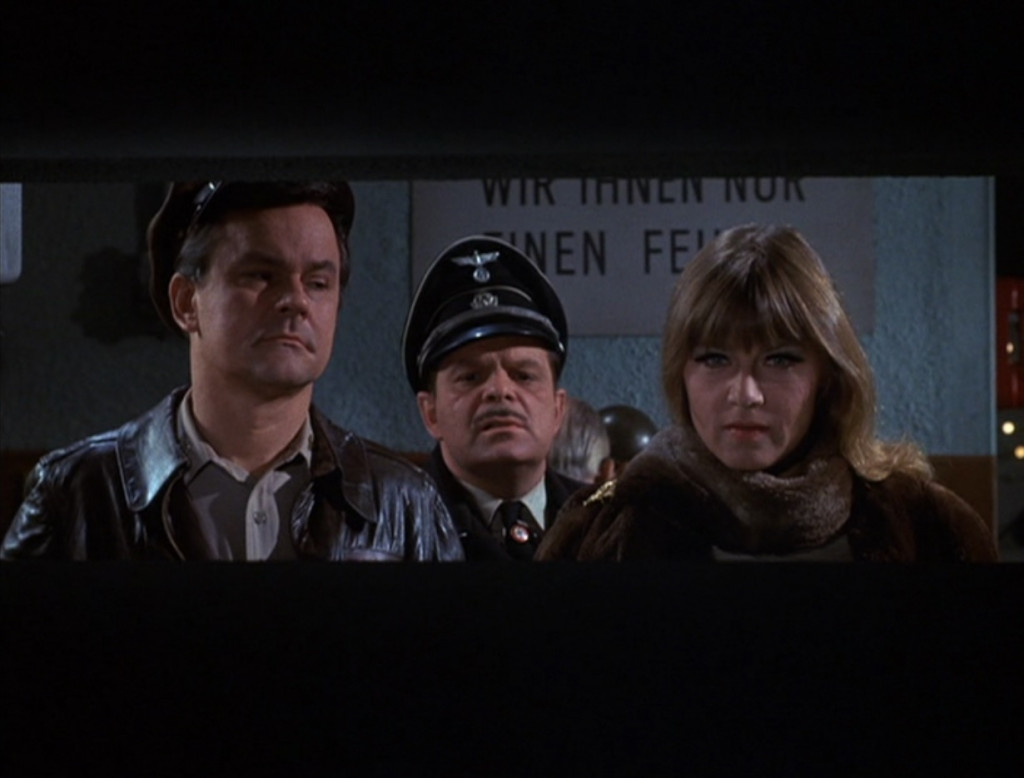
‘The Witness’ (1969) chronicles the tense political climate of the early 1950s and the 1956 Hungarian Uprising. The story of the film is set during the height of the Rákosi Era. Directed by Hungarian filmmaker and screenwriter Péter Bacsó, ‘The Witness’ garnered massive attention after it was banned by the Hungarian government. The narrative of the film criticizes the post-WWII communist regime in Hungary. The outspoken criticism coupled with the satirical and witty writing by Péter Bacsó and János Újhegyihas earned the movie an unparalleled cult status.
Read More: Movies Like Raging Bull
4. Borat: Cultural Learnings of America for Make Benefit Glorious Nation of Kazakhstan (2006)
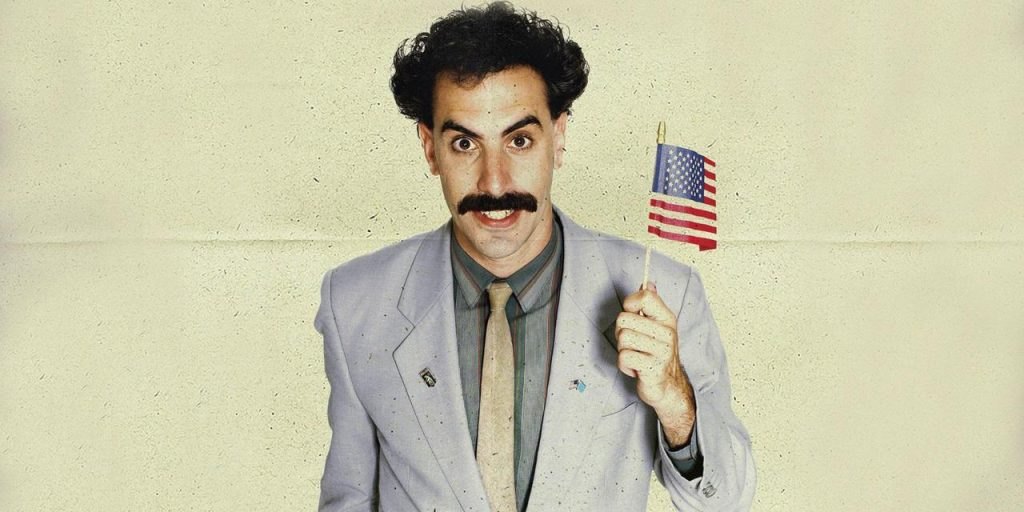
‘Borat’ is one of the most shocking, disgusting but powerful films I have ever seen. Directed by American filmmaker Larry Charles, it is a branch of the British satirical television series ‘Da Ali G Show’ (2000-04), created by Sacha Baron Cohen. The film is a satire to its core and has been credited with bringing in a new wave in the genre of comedy. Shot in the style of a documentary, the film satirizes the American government and sensibilities and their ignorance of the world outside. It follows Sacha Baron Cohen as the titular character – Borat Sagdiyev – a fictitious Kazakh journalist who is travelling through the United States recording “real-life interactions” with Americans. While the film is certainly shocking and sometimes obnoxious, it has some serious writing issues. However, the slapstick but witty humour earned the film massive critical praise and it went on to bag a couple of nominations at the Golden Globes and the Academy Awards.
Read More: Movies Like Fargo
3. Monty Python and the Holy Grail (1975)
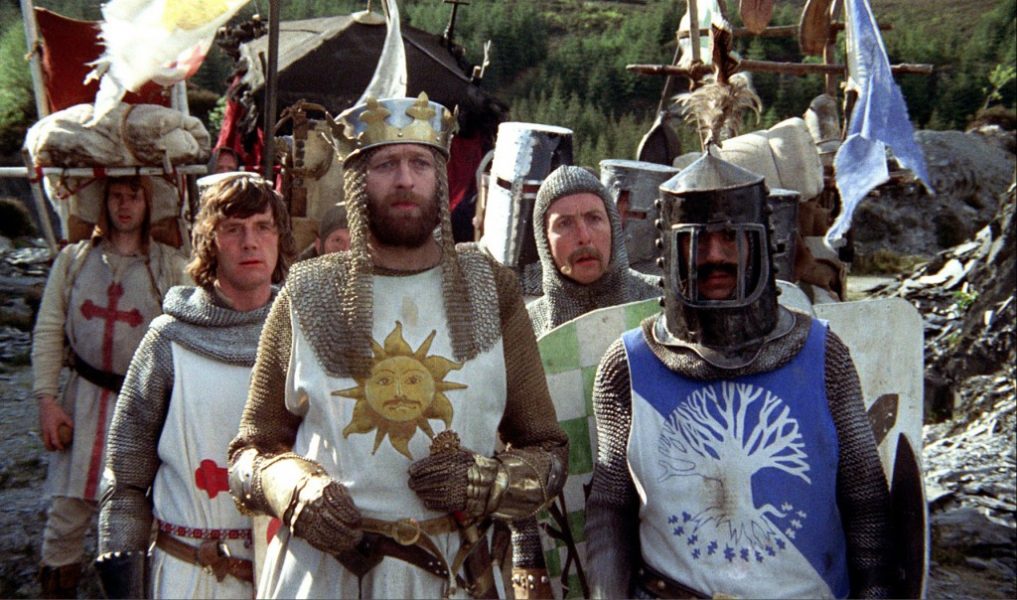
A British comedy classic, ‘Monty Python and the Holy Grail’ (1975) chronicles the journey of the iconic King Arthur and his Knights of the Round Table as they embark on a surreal and low-budget search for the Holy Grail while encountering the most ridiculous and silly obstacles. Co-directed by Terry Gilliam and Terry Jones, the film has become one of the most beloved and best-reviewed comedy movies of all time. Connived by the comedic group of Monty Python, the film is built upon witty parodies and satire. The film satirizes the concept of religious autonomy and parodies the Arthurian legend King Arthur, receiving immense criticism from many religious groups. Although the premise and the writing were met with much criticism from contemporary critics and viewers, ‘Monty Python and the Holy Grail’ has gone on to become a legendary film within the umbrella of comedy and satire. The movie, with its commercial lucidness, spawned off another highly appreciated sequel ‘Monty Python’s Life of Brian’ (1979).
Read More: Movies Like Forrest Gump
2. The Great Dictator (1940)
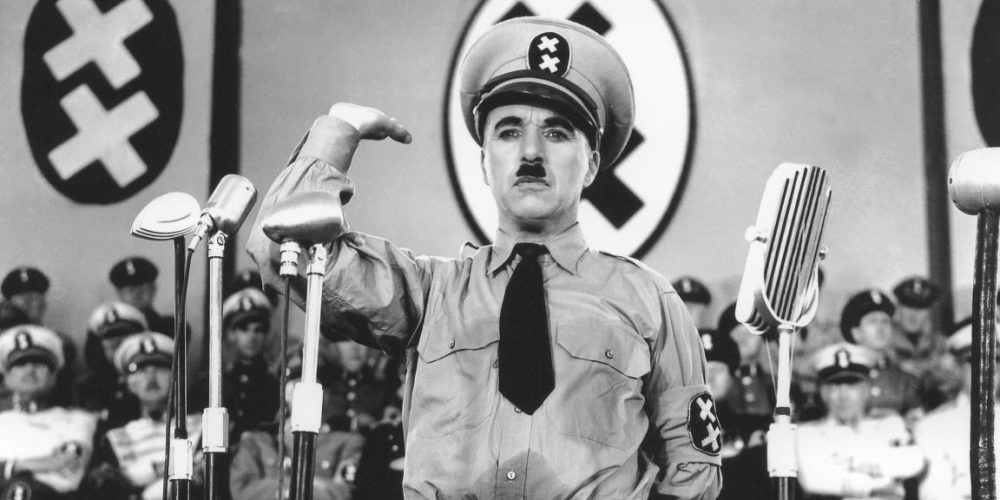
A part of the gamut of film parodying the totalitarian figure of Adolf Hitler, ‘The Great Dictator’ (1940) is a meticulously created political commentary on the horrendous reign of the dictator. A political satire, the film follows the two separate lives of Adolf Hitler and a Jew Barber in Nazi Germany, with both essayed by comedic legend Charlie Chaplin. The concept of the same actor playing the two opposing entities makes a cohesive argument on the heinousness of Adolf Hitler’s rule over Germany. The film satirizes the regime of the Nazi troops and parodies the strict timetable followed by the tyrant. However, within the barrel of laughter lies an intrinsic look at the lunacy of the rule and the complete loss of humanity. The biggest commercial success of Chaplin’s career, ‘The Great Dictator’ five Academy Award nominations and was restored by the Library of Congress for preservation in the United States National Film Registry as “culturally, historically, or aesthetically significant”.
Read More: Movies Like The Graduate
1. Strangelove or: How I Learned to Stop Worrying and Love the Bomb (1964)

A political satire and a black comedy, Dr Strangelove’ comments on the Cold War, that bears a nuclear conflict between the Soviet Union and the United States. Kubrick‘s narrative lays emphasis on the “doomsday machine” as an out-of-wits general tries to start a nuclear holocaust that a room full of diplomats. politicians and scientists desperately try to stop. The director draws parallel imagery between the detailed military strategies and the hideous outcomes of the war.
In addition, the director creates interesting characters which help the narrative transform the seriousness of the matter into comedic gold. ‘Dr. Strangelove’ was a milestone and transformed the genre of black comedy and satire. It went on to win a number of accolades and was ranked 3 on AFI‘s “100 Years…100 Laughs”. Apart from that, the film was among the first group of movies to be inducted for preservation in the National Film Registry.
Read More: Movies Like The Godfather

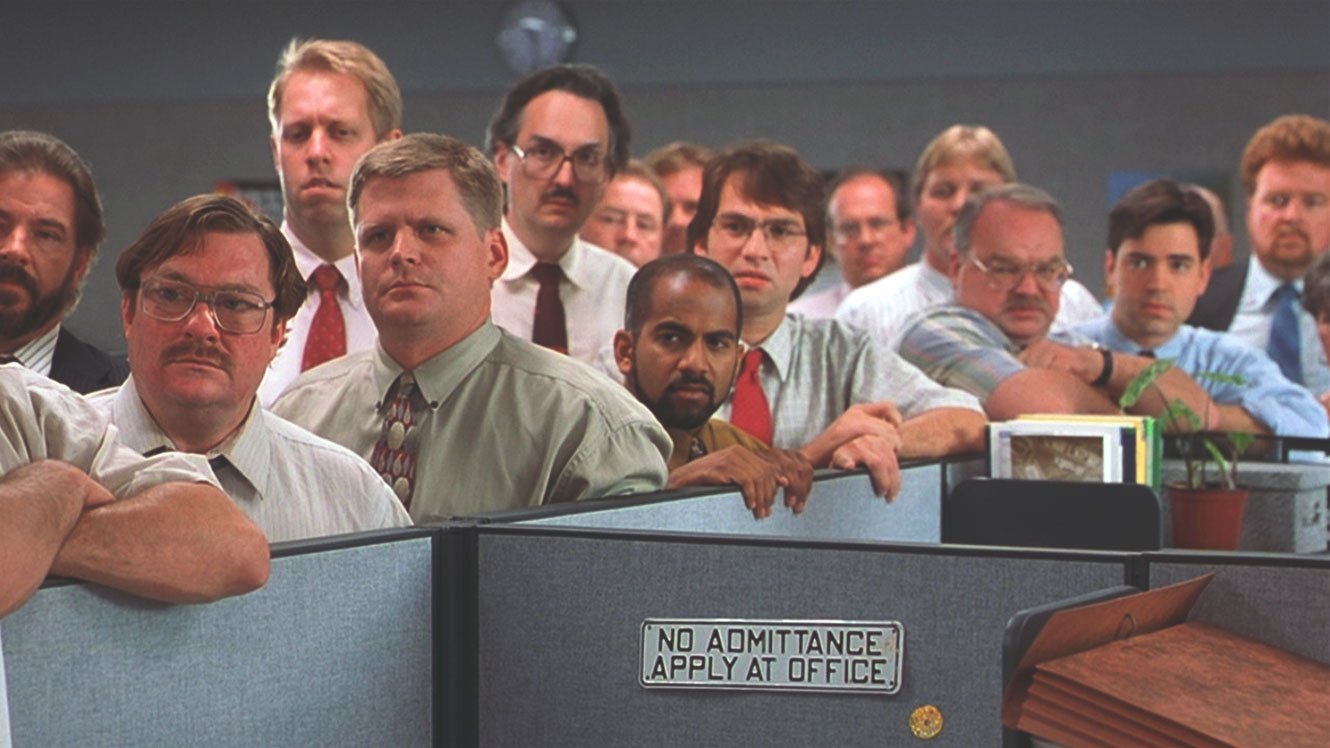
You must be logged in to post a comment.